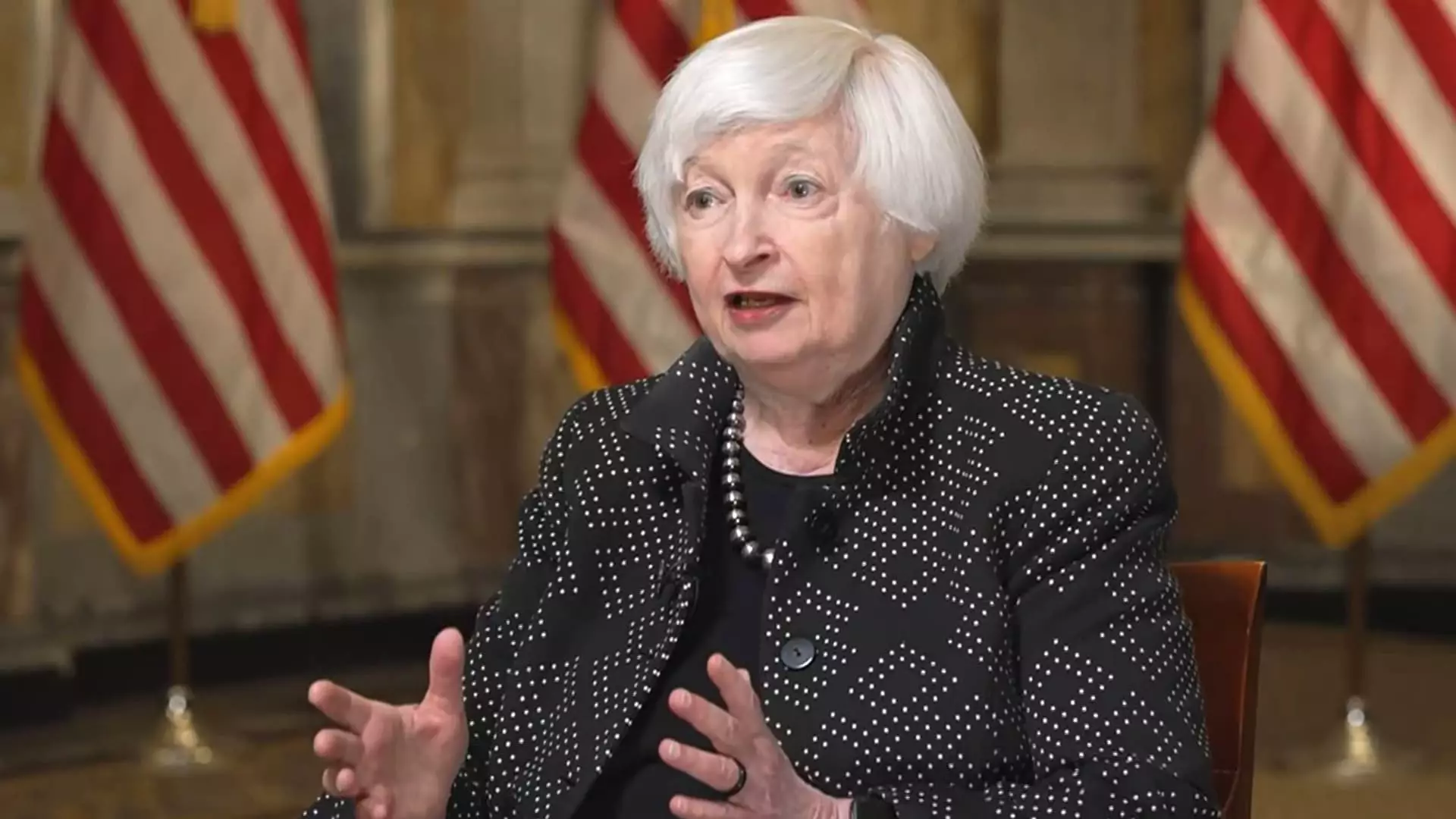In the wake of the COVID-19 pandemic, the United States faced an unprecedented economic downturn that necessitated immediate and robust intervention from the government. In this context, Treasury Secretary Janet Yellen recently addressed the impacts of the stimulus spending facilitated through President Joe Biden’s administration. While acknowledging that the massive $1.9 trillion relief package might have played a minor role in the ongoing inflation, she emphasized that the primary drivers of rising prices are rooted in the pandemic-induced disruptions to supply chains. The current scenario highlights the delicate balance policymakers must maintain between stimulating recovery and managing inflationary pressures.
Yellen’s assertion that inflation is predominantly a “supply-side phenomenon” resonates deeply with current economic analyses. During her exit interview, she pointed to significant supply chain disruptions that have plagued various sectors since the onset of the pandemic. These disruptions have resulted in critical shortages, thereby pushing prices up. This perspective invites a wider discussion about the interconnectedness of global supply chains and the vulnerabilities exposed during crises. Such insights underline the importance of strategic planning and resilience-building in economic policies to mitigate future risks.
A salient point Yellen raised is the challenge of balancing fiscal spending with economic stability. She defended the substantial government expenditures made during the crisis, citing the urgent need to address the humanitarian issues arising from widespread unemployment and public health crises. Her insistence on recalling the dire circumstances when Biden took office serves as a reminder of the government’s duty to respond effectively in times of crisis. However, critics remain concerned about ballooning deficits, which amounted to $1.8 trillion in the last fiscal year. In response, Yellen noted that while interest rates have risen, discretionary spending remains historically low, suggesting that the conversation around deficits must consider these nuances.
The discussion also touched on alternative approaches to managing government spending, such as the proposal from President-elect Donald Trump’s advisory group advocating for significant cuts. Yellen expressed skepticism regarding the feasibility of such drastic measures, highlighting the political and social impracticalities of slashing popular programs like Social Security and Medicare. This predicament reveals the tensions between opposing economic philosophies and the complexity of formulating policies that appeal to both fiscal conservatism and social welfare.
As Yellen prepares to vacate her post, she expressed confidence in her successor, hedge-fund executive Scott Bessent, citing his extensive market experience as an asset for managing financial security in the nation. This transition could signal a shift in economic policy focus, especially considering the array of challenges that lie ahead, such as inflation management and global economic recovery. Yellen’s acknowledgment of Bessent’s qualifications underscores the importance of having skilled leadership at the helm of the Treasury as the United States navigates the complexities of a post-pandemic economy.
Yellen’s reflections provide a multifaceted view of the economic ramifications of pandemic relief efforts, the persistent challenge of inflation, and the broader implications for fiscal policy in the future. The ongoing dialogue about these issues is crucial for understanding the evolving landscape of the U.S. economy.


Leave a Reply